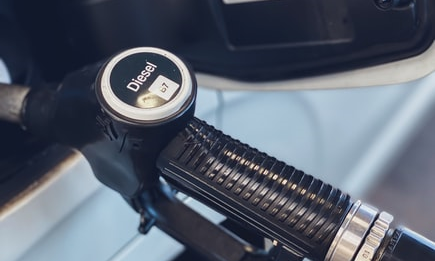Europe is looking for diesel, but the Middle East will not supply it

Europe has ramped up fuel imports from the Middle East and the United States ahead of an EU ban on seaborne imports of Russian refined petroleum products. Before the ban, Europe was still the largest buyer of Russian diesel and will need to significantly increase imports from non-Russian suppliers after the embargo goes into effect on Sunday.
However, the Middle East – despite the addition of refining capacity planned in recent years – may not be able to meet European demand due to delays in commissioning some new refineries.
The EU is banning imports of Russian refined petroleum products as of February 5 and must replace about 1 million barrels per day (bpd) of fuel imported from Russia, including 600,000 bpd-650,000 bpd of diesel. Europe has stocked up on Russian supplies in view of the embargo, but these will run out.
In December, for example, Russian diesel exports rose to a multi-year high of 1.2 million bpd, of which 720,000 bpd went to the EU, according to estimates in the latest Oil Market Report by the International Oil Agency. 'Energy (IEA).
After February 5, global diesel markets and product flows are set to change, with Russia looking to locate its refined products elsewhere and Europe sourcing more from the United States, the Middle East and from Asia, analysts say. With some new Middle Eastern refineries delayed, Europe will have to increase supply from the US and Asia, but this will certainly have global implications
Middle Eastern producers are trying to meet European demand for diesel fuel. Kuwait, for example, plans to quintuple its diesel exports to Europe this year, to about 50,000 bpd, a source familiar with the matter told Bloomberg last month. The Gulf oil producer, one of OPEC's largest, also plans to double its jet fuel sales to Europe in 2023, to nearly 5 million tonnes.
In addition, the Kuwait National Petroleum Company said this week that the Mina Al-Ahmadi refinery sent the first shipment of diesel – of about 38,000 tons – developed for European markets, compliant with international environmental standards and specifications and suitable for cold weather.
But Kuwait's huge new Al-Zour refinery, which will process 615,000 bpd of crude and can produce about 145,000 bpd of diesel, has not yet reached full operating capacity. According to Bloomberg, the refinery is expected to start a second unit this month and a third and final line in April.
Saudi Arabia's Jazan and Oman's Duqm refineries are also in the startup phase, and analysts predict they may be able to fill some gaps in diesel and other fuels in Europe as late as 2023.
“Refinery projects in the Middle East are prone to commissioning delays,” Ahmed Mehdi, a commodity analyst at Renaissance Energy Advisors, told Bloomberg.
“Europe will not benefit from the additional barrels until the end of 2023,” Mehdi added.
US refiners, for their part, see the potential to increase exports to Europe.
“We see an increase in exports to Europe,” Brian Partee, Marathon Petroleum's senior vice president of Global Clean Products Value Chain, said at this week's press conference.
According to analysts, Europe will enter the embargo well supplied, especially after importing a lot of Russian diesel and other products in late 2022.
“Europe will enter the post-Russian diesel world relatively well supplied. The rush on Russian diesel imports in the third quarter of 2022, combined with a warmer European winter and good natural gas supplies, eased the diesel supply shock and panic buying experienced in October 2022.” Vortexa senior market analyst Pamela Munger said last month.
ING strategists Warren Patterson and Ewa Manthey commented on the embargo this week: “Despite the imminent disruption of flows, the market appears relatively calm – the diesel crack has been declining since late January. This is likely because the market has had a significant amount of time to prepare for the ban. We have seen strong inflows of middle distillates into Europe ahead of February 5th.”
Diesel inventories at the Amsterdam-Rotterdam-Antwerp (ARA) hub have increased since early December, returning inventories to the five-year average and the highest level since July 2021, ING said.
"However, we expect to see a squeeze once the ban is in place."

Thanks to our Telegram channel you can stay updated on the publication of new articles from Economic Scenarios.
The article Europe is looking for diesel, but the Middle East won't supply it comes from Economic Scenarios .
This is a machine translation of a post published on Scenari Economici at the URL https://scenarieconomici.it/leuropa-e-alla-ricerca-di-gasolio-ma-il-medio-oriente-non-lo-fornira/ on Sat, 04 Feb 2023 12:37:44 +0000.
